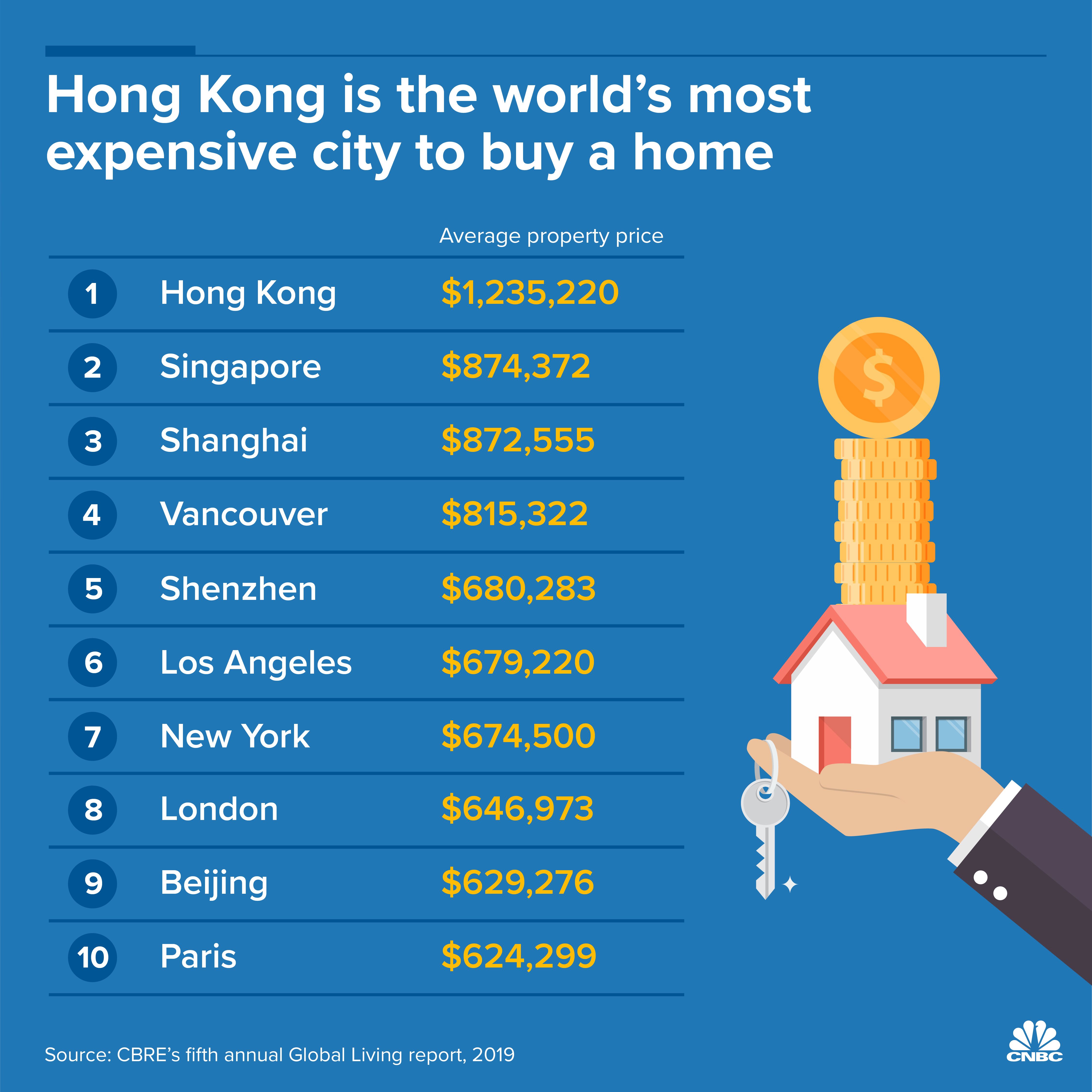Residential units are seen clustered tightly together in an apartment complex in the Quarry Bay area of Hong Kong.
Alex Ogle | AFP | Getty Images
Hong Kong’s new housing policy package may ease some tensions, but it is unlikely to cure social unrest in the city, says JLL’s Hong Kong Business Chairman Joseph Tsang.
Hong Kong’s embattled leader Carrie Lam introduced a number of housing policies last week during her annual policy address. The new measures come as Lam tries to restore some confidence in her city, which has been embroiled in five months of protests.
“The government is trying to divert the tension from political to housing and whether this is a successful tactic, or the right way forward, I’m not too sure,” said Joseph Tsang, chairman of Hong Kong business at American commercial real estate services firm JLL.
Tsang said “housing is one of the big issues, but … some of the problems got nothing to do with the housing problem. The policies can help, to some extent, to stabilize the hopeless feeling from a lot of the younger generation.”
Business leaders and politicians have suggested that the widening wealth gap and housing affordability are among the key social issues underpinning the financial center’s political crisis. Rental prices in Hong Kong surpass those in New York, Paris and Singapore, and many young professionals living in the Chinese-ruled territory struggle to afford housing.
Lam, said on Wednesday, that her policies will ensure “every Hong Kong citizen and his family will no longer have to be troubled by or pre-occupied with the housing problem, and that they will be able to have their own home in Hong Kong, a city in which we all have a share.”
CK Asset Holdings, Henderson Land Development, Sun Hung Kai Properties, and New World Development — four major Hong Kong developers — own the majority of the New Territory agricultural land subject to the land resumption policy. All four companies saw a jump in their stock price after the announcement on Wednesday.
Easier loans and lower down payments
The initiatives could be a good step forward in improving quality of life for low-income households, Hannah Jeong, head of valuation & advisory services at global commercial real estate services firm Colliers, told CNBC.
Lam’s policies will allow first-time home buyers to borrow up to 90% of a property’s value, capping out at 8 million Hong Kong dollars ($1.02 million). That’s a significant increase from the previous 60% and 4 million Hong Kong dollar (roughly $510,000) cap.
That means first-time buyers would be able put down a 10% down payment, versus the 40% previously required.
Jeong explained that threshold increase means developers no longer need to “chop” the units into small 240 square foot houses — footprints smaller than parking spaces. Jeong said purchasers can now expect “responsible sizes… at 400 to 500 square foot.”
The package also raises the value cap for properties eligible for mortgage loans with an 80% loan-to-value ratio to 10 million Hong Kong dollars (about $1.28 million), from 6 million Hong Kong dollars (about $770,000).
Consequently, Morgan Stanley predicted that “small to medium-sized units should benefit more than large/luxury units.”
Two methods
Besides making homes more affordable for buyers by making it easier to take out loans, Lam’s policy package also includes two land measures. The first is a land resumption policy that enables the government to seize land in order to redevelop it for housing projects. The other is a joint venture proposal in which companies would work with the government on developing the agricultural land into both for-profit and public projects.
Collier’s Jeong said the land resumption policy could help developers as much of that land “have been abandoned, temporarily occupied by containers, agriculture.” Approval for redevelopment would require huge payments as well as lengthy processing time for licenses, encouraging landowners to turn property over.
For these initiatives to work, JLL’s Tsang said “it will be about how much the government can offer” and if the two parties can agree on price otherwise deals might be held up in court. He suggested the government “start off with, talking to the developers who own the agricultural land” and then speed up approvals to develop the agricultural land.
While details of how these partnerships would work have not yet been disclosed, Tsang said it could be a win-win if the government can successfully establish joint ventures with developers.
He said, for example, the government could “give you a green light to go ahead, but in return you have to give up a percentage of, for example 50% to 70% of the development area, surrender it back to the government for public housing. And then they can use the rest for private development and for profit.”
He said, if developers reject the offer then their land might “end up sitting there for the next 20 to 30 years doing nothing.” The logic is, by accepting the offer from the government, “they can utilize the land, there at least will be some money to be made.”
But he warned that Lam must approach it with caution.
“This needs to be mindful, politically. Any incentive will be viewed by the general public to be conflict of interest. People will see the government trying to benefit certain developers, so the government must be more careful (who they partner with),” said Tsang.


